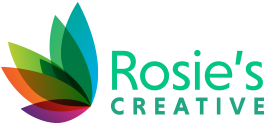
Intelligent vs. Intuitive vs. Psychic
Definitions Provided by Merriam-Webster Dictionary, www.merriam-webster.com/
in·tel·li·gent
adjective \in-ˈte-lə-jənt\
- having or showing the ability to easily learn or understand things or to deal with new or difficult situations : having or showing a lot of intelligence
- able to learn and understand things
- having an ability to deal with problems or situations that resembles or suggests the ability of an intelligent person
in·tu·i·tive
adjective \in-ˈtü-ə-tiv, -ˈtyü-\
- having the ability to know or understand things without any proof or evidence : having or characterized by intuition
- based on or agreeing with what is known or understood without any proof or evidence : known or understood by intuition
- agreeing with what seems naturally right
psy·chic
adjective \ˈsī-kik\
- used to describe strange mental powers and abilities (such as the ability to predict the future, to know what other people are thinking, or to receive messages from dead people) that cannot be explained by natural laws
- of a person : having strange and unnatural mental abilities : having psychic powers
- of or relating to the mind
Design, development, and marketing related professions all have one big, universal obstacle in common – how to identify the expectations of the client. Because clients and their businesses are as unique and multitudinous as the stars in the sky, creative professionals are often tasked with the complex (and sometimes dangerous) job of establishing client expectations. These expectations can include, but are not limited to, project form, function, and results. More often than not, a client can have a difficult time expressing their expectations, so the professionals are asked to divine and solidify abstract concepts and turn them into tangible ROI.
Creative professionals (often referred to as “the creatives”) are recognized as people who can intuitively establish a set of parameters for a design or development project based on the interaction they have with their client. The use of the term “intuitive” is, actually, a misnomer and should be replaced with “intelligent”. Project parameters are intelligently built using client feedback, body language, and written or visual clues. Sometimes a client is very clear and specific about their needs and desires, while other times they are ambiguous and indecisive.
Creatives will use a set of tools beyond their intuition intelligence to help map the goals and expectations of any project. These tools can include project scopes, word bubbles, outlines, spreadsheets, questionnaires, and even Rorschach tests (Yes, I’ve seen this. It has actually happened.). All are implemented with the intent to clearly define, in writing, the scope of any given project and concrete the intangible aspects of a job. By establishing acceptable parameters, the creative can create and produce within the boundaries of budget, platform, design, and investment goals.
Additionally, Creatives will build their findings into their design or user interface, in hopes of making it more user friendly or “intuitive”.Intuitive design (not to be confused with “intelligent design”), is actually another misnomer. Design and interface cannot be intuitive since it is not human.
“To those who police the English language, interfaces can’t be intuitive, since they are the behavior side of programs and programs can’t intuit anything. When someone is asking for an intuitive interface, what they are really asking for is an interface that they, themselves, can intuit easily. They are really saying, “I want something I find intuitive.” – Jared M. Spool,http://www.uie.com/articles/design_intuitive/
With this being the case, what happens when expectations exceed reasonable process? At what point do the expectations elevate to card reading and diving the future? Creative professionals are not psychic. They cannot predict the future. They do not know what other people are thinking. They do not receive messages from dead people. They can’t predict the winning numbers for the lottery.
When a client asks “How much money will I make?”, “How many people will respond to your design?”, and “How do you even know this will work?”, how do creatives respond? First, most creatives will rely on their experience. This is okay, if they have extensive experience and their motivations go beyond landing a client. Second, creatives may reference published articles or analytics to support their particular point of view. Lastly, but perhaps it should be first, creatives will administer research studies and crowd research to scientifically map user interaction and define “intuitive” interactions. This is costly and is typically included in the budget of a project scope, if the client can bare it.
Perhaps the key to bridging the gap between “intelligent” and “psychic” is understanding, not intuition. As a professional, whether creative or client, a clear understanding of expectations and project specifications is essential. As resources become more constrained (small budget), it becomes more essential for the partnership to behave as one. Communicate as clearly as possible, and be sure to establish realistic goals, and don’t be afraid to accept new ideas or take a calculated risks.
“Intuitive design” doesn’t actually exist. Replace the term with “relatable design”. Success is directly related to how many times you ask yourself “Does this relate to me? Or does it relate to my audience and goals?” Remember, they are not one in the same.

